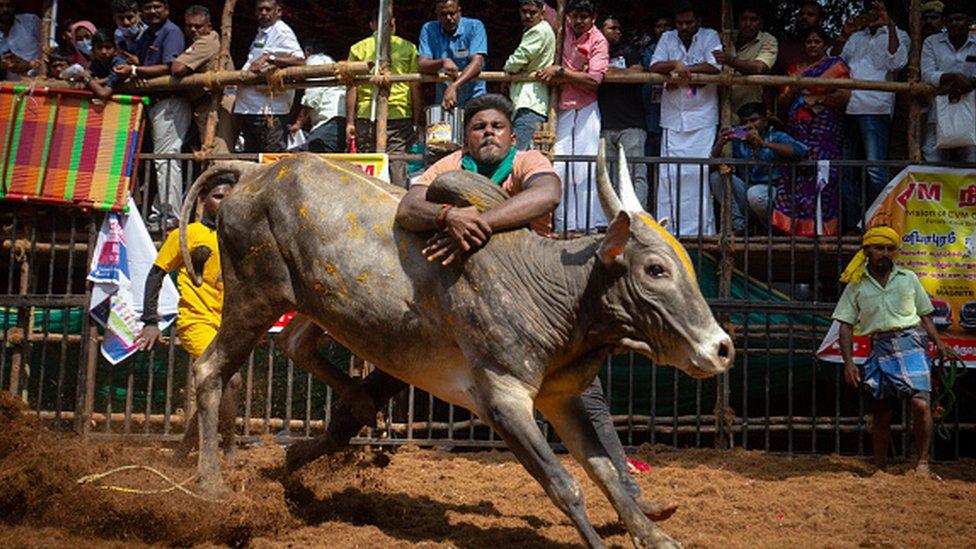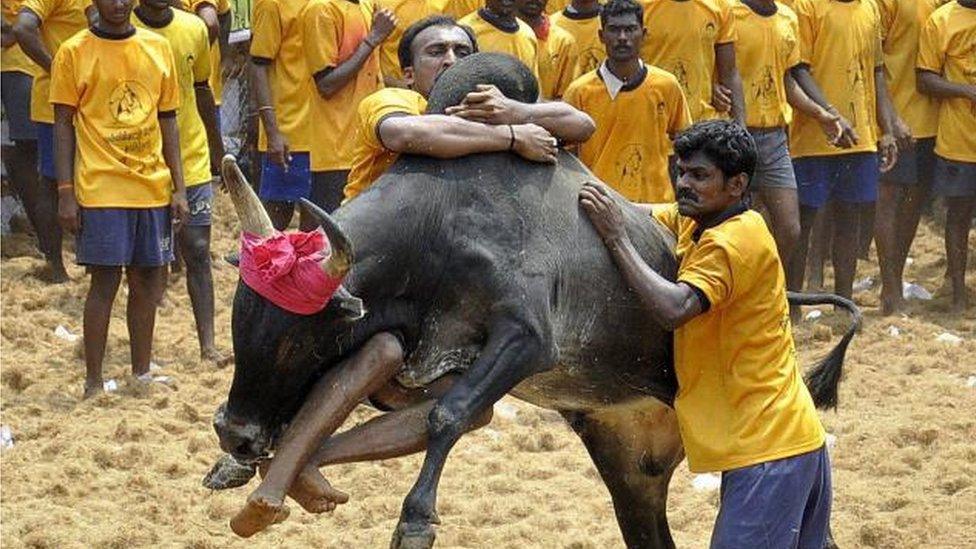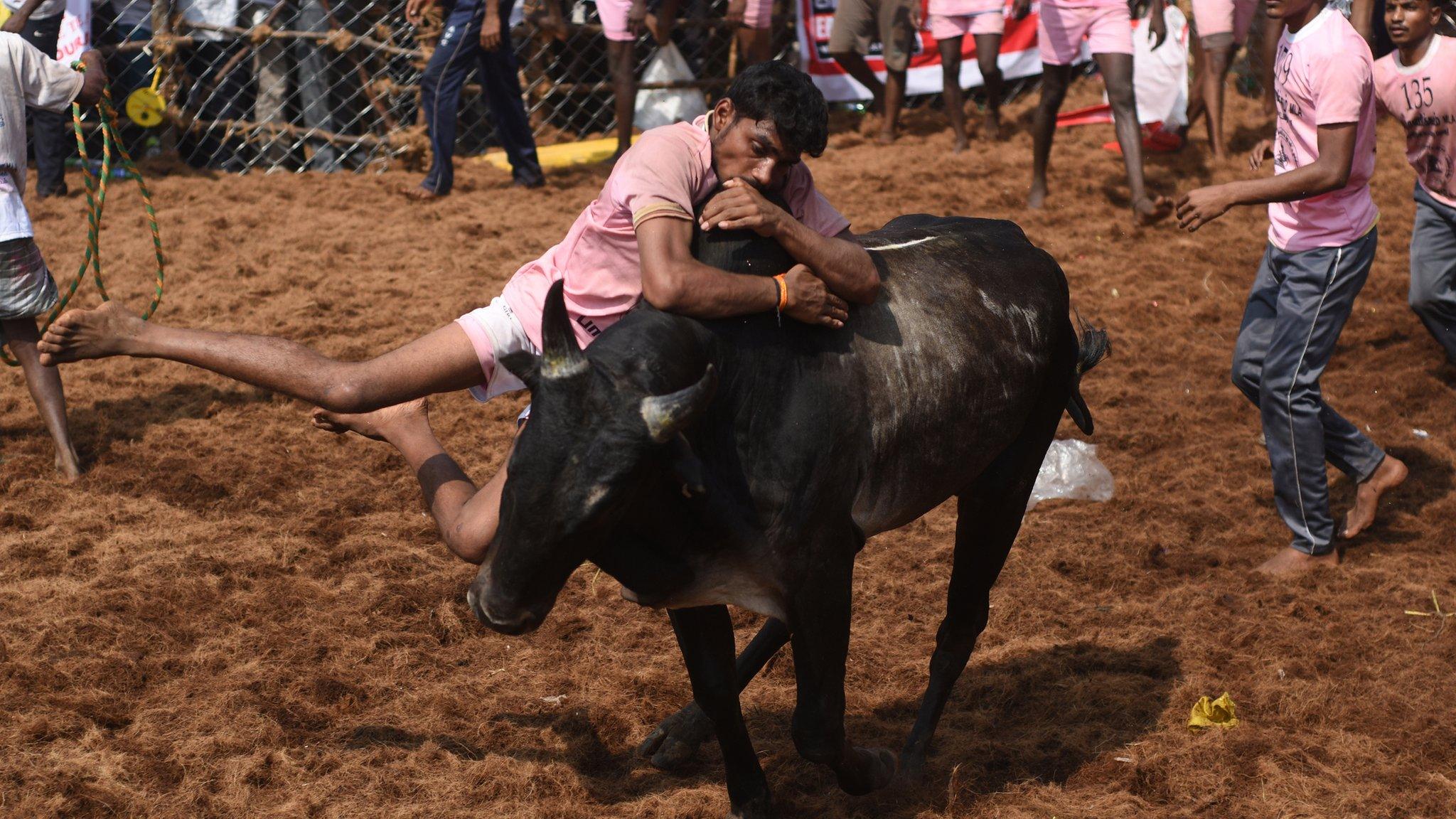Jallikattu: Supreme Court upholds validity of Tamil Nadu law allowing bull-taming sport
- Published

A ban on the sport had been lifted after the Tamil Nadu government passed a law to allow it
India's Supreme Court has upheld a law allowing Jallikattu, a controversial bull-taming festival popular in the southern state of Tamil Nadu.
The practice - first banned by a court in 2006 - was legalised again by the state through an amendment in 2017.
Animal rights groups, led by People for Ethical Treatment of Animals (PETA), had challenged this in the top court.
The Supreme Court on Thursday ruled the law did not violate the Indian Constitution.
The verdict was delivered by a five-judge Constitution bench of the Supreme Court which upheld the Tamil Nadu law's protection of Jallikattu.
"When legislature has declared that Jallikattu is part of cultural heritage of Tamil Nadu state, the judiciary cannot take a different view," the court said.
Besides Tamil Nadu, the court also dismissed petitions challenging constitutionality of the laws in Karnataka and Maharashtra which permitted bull-taming and bull-racing festivals in these states.
More than 2,000 years old, Jallikattu is considered one of the oldest sports still practised in the modern era and is held during the Tamil harvest festival of Pongal
In the sport, a bull is released from the pen and bullfighters attempt to hold on to the animal's hump for about 15-20 metres or three jumps of the bull to win a prize. If no one succeeds, the bull wins.
Over the years, scores of people have been gored or trampled to death in the contests. Hundreds, including spectators, have been injured.
Animal rights activists have also said the sport is cruel to animals but supporters have called it an important part of their cultural heritage. They also say the animals were well looked after and the sport ensured the preservation of native breeds of bulls.
The practice was first banned by the Madras High Court in Tamil Nadu in 2006 after a young spectator attacked by a bull died.
It was then banned by the Supreme Court in 2014 on grounds of animal cruelty.
The Tamil Nadu government temporarily lifted the ban in 2017 after the state was rocked by protests in support of the sport.
The state government then amended its law to allow the sport to continue being practiced.
The amendment was however challenged in court by groups like PETA, which called it unconstitutional and illegal.
During the hearings in the Supreme Court, the Tamil Nadu government called, external Jallikattu "not merely an act of entertainment or amusement but an event with great historic, cultural and religious value".
BBC News India is now on YouTube. Click here, external to subscribe and watch our documentaries, explainers and features.

Read more India stories from the BBC:
Related topics
- Published19 July 2016

- Published17 January 2018
